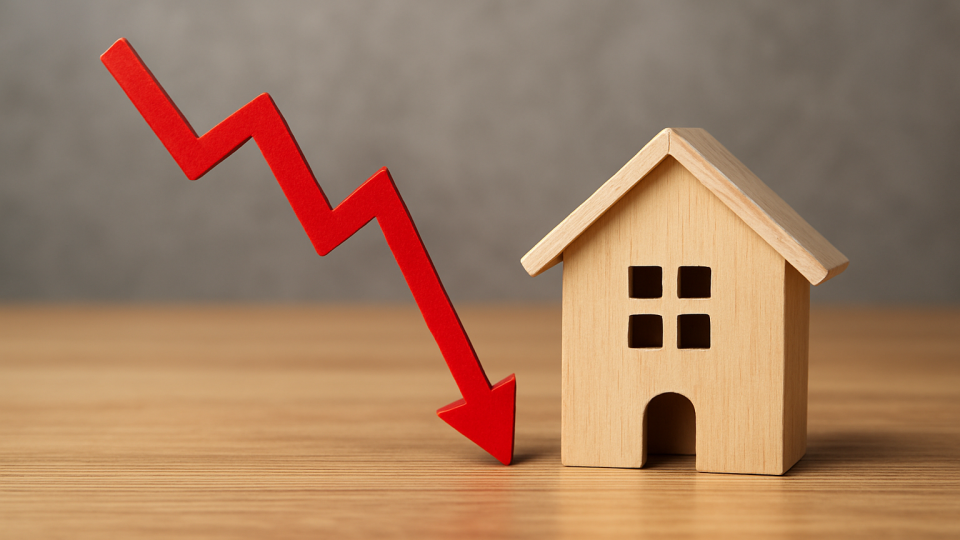
How Declining Rents Could Impact Property Values in Vancouver, BC, in 2025
Vancouver’s rental market is softening, with rents dropping by approximately 13% ($443 per month) over the past 14 months, a trend noted in posts on X and local reports. This decline, which brings the average one-bedroom rent to around $2,522 as of early 2025, raises a key question: how does this affect property values in a city known for its sky-high real estate prices? Let’s break it down.
The Rent-Property Value Connection
In real estate, property values for income-generating assets like rental units are often tied to their revenue potential. Investors typically use metrics like the capitalization rate (cap rate)—net rental income divided by property value—to assess worth. When rents fall, as they have in Vancouver, the net income from a property decreases. If cap rates remain stable, this logically pushes property values down. For example:
- A $1 million rental property with $50,000 in annual rent (5% cap rate) sees its rent drop to $44,000 (a 12% decline). At the same cap rate, its value could fall to roughly $880,000—a 12% hit.
This simplified model suggests Vancouver property values could face downward pressure in 2025, especially for investor-owned condos and multi-family units, which dominate the rental market.
Supply and Demand Dynamics
The rental decline stems partly from increased housing supply—18,741 new rental units started in BC over the past year, with many concentrated in Vancouver. This influx, alongside policies loosening strata rental restrictions, is boosting vacancy rates. The Canada Mortgage and Housing Corporation (CMHC) predicts a softening rental market province-wide in 2025, with higher vacancies potentially curbing rental income further. For property values, more supply and less demand could mean slower price growth or even declines, particularly in oversupplied segments like condos, where investor activity is cooling.
Investor Sentiment and Market Behavior
Posts on X from property managers indicate rents are down 10% from their peak, a rare occurrence outside a recession. Investors, who make up a significant chunk of Vancouver’s market (31% of condos in Greater Vancouver, per Mortgage Sandbox), might see lower returns as a red flag. If they pivot to selling rather than holding, inventory could rise—10,948 homes were listed by December 2024, up 24.4% year-over-year. More listings, paired with declining rental yields, could tip the market toward buyers, softening property values further. Anecdotal X chatter about piling detached home inventory hints this pressure might extend beyond rentals.
Counteracting Forces
Not so fast—Vancouver’s property market has unique resilience. Despite flat assessments in 2025 (per BC Assessment, reflecting July 2024 values), home sales jumped 31.2% in December 2024, and benchmark prices held steady at $1,171,500. Lower interest rates, down from their 2022-2023 highs, are spurring buyer activity, as noted by Greater Vancouver Realtors. For owner-occupied homes, rental declines matter less—values here are driven more by demand for living space than income potential. Geographic constraints and strong underlying demand (despite slower immigration) could also prop up prices, especially for single-family homes.
Economic Wild Cards
External factors loom large. Potential U.S. tariffs in 2025 could slow BC’s economy, reducing housing demand and indirectly hitting both rents and property values. Conversely, if rates keep falling, borrowing costs could drop further, boosting affordability and cushioning any price dips. The BC Real Estate Association warns of “storm clouds” from trade disruptions, suggesting economic uncertainty might amplify rental-driven value declines.
What to Expect in 2025
- Condos and Rentals: Most at risk. A 10-13% rent drop could translate to a 5-10% value decline for investment properties, especially in condo-heavy areas like downtown Vancouver, if investor confidence wanes.
- Detached Homes: Less impacted. First-time and move-up buyers, fueled by lower rates, might keep prices stable or slightly up (Re/Max predicts a 7% rise across home types), though softening rents could cap gains.
- Neighborhood Variance: Areas like Renfrew-Collingwood, with bigger rent drops, might see sharper value adjustments, while luxury enclaves like Point Grey hold firm due to scarcity.
The Bottom Line
Declining rents are a double-edged sword for Vancouver’s property values in 2025. They signal relief for tenants but pressure for investors, potentially dragging down values in the rental-heavy condo market. Yet, robust buyer demand and limited land supply could blunt the impact, keeping the overall market balanced rather than crashing. Watch inventory levels and interest rates closely—if listings surge or rates stall, the scales might tip toward a broader price softening. For now, Vancouver’s real estate juggernaut looks poised to weather this rental shift, but not without some cracks showing.